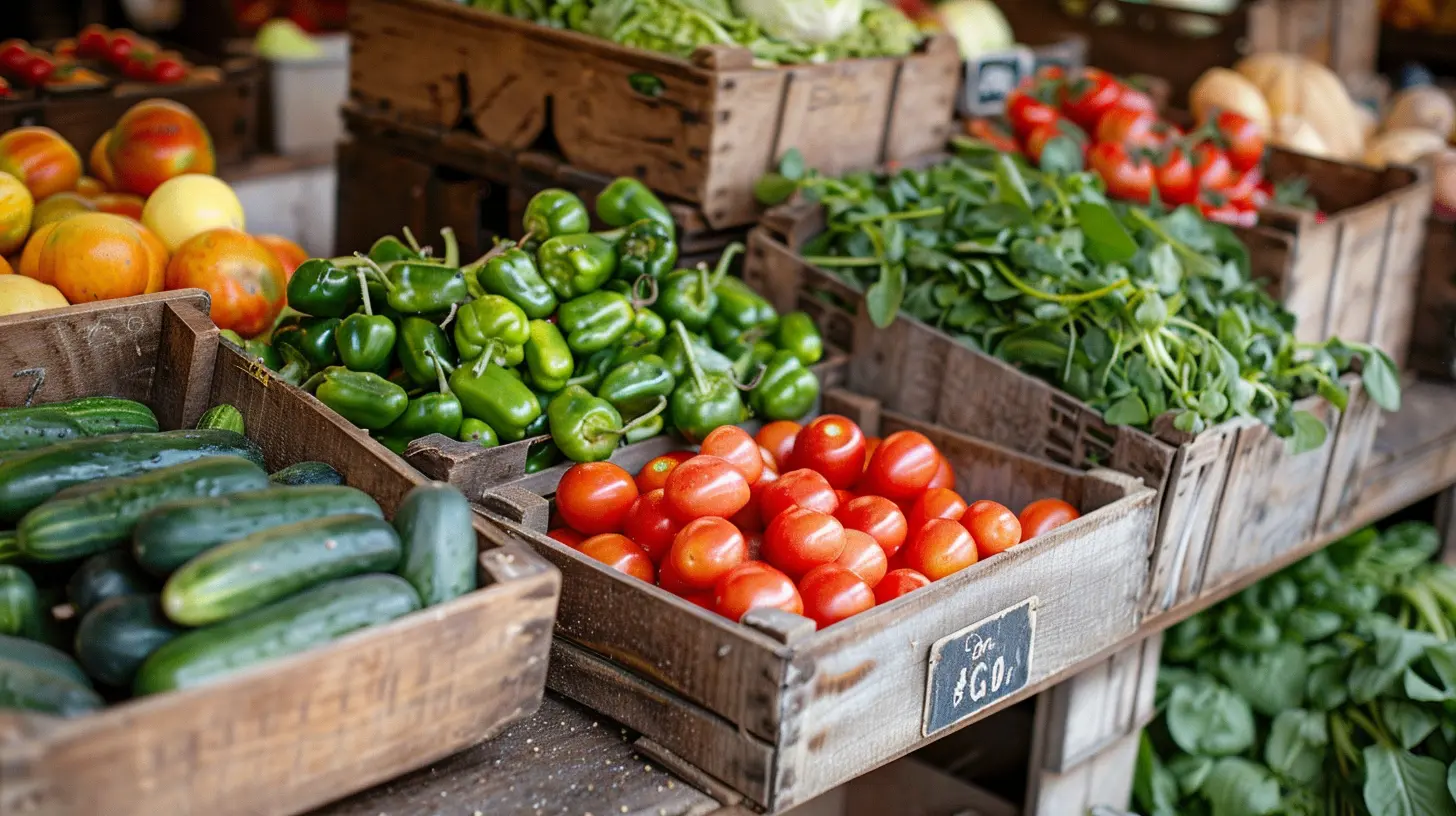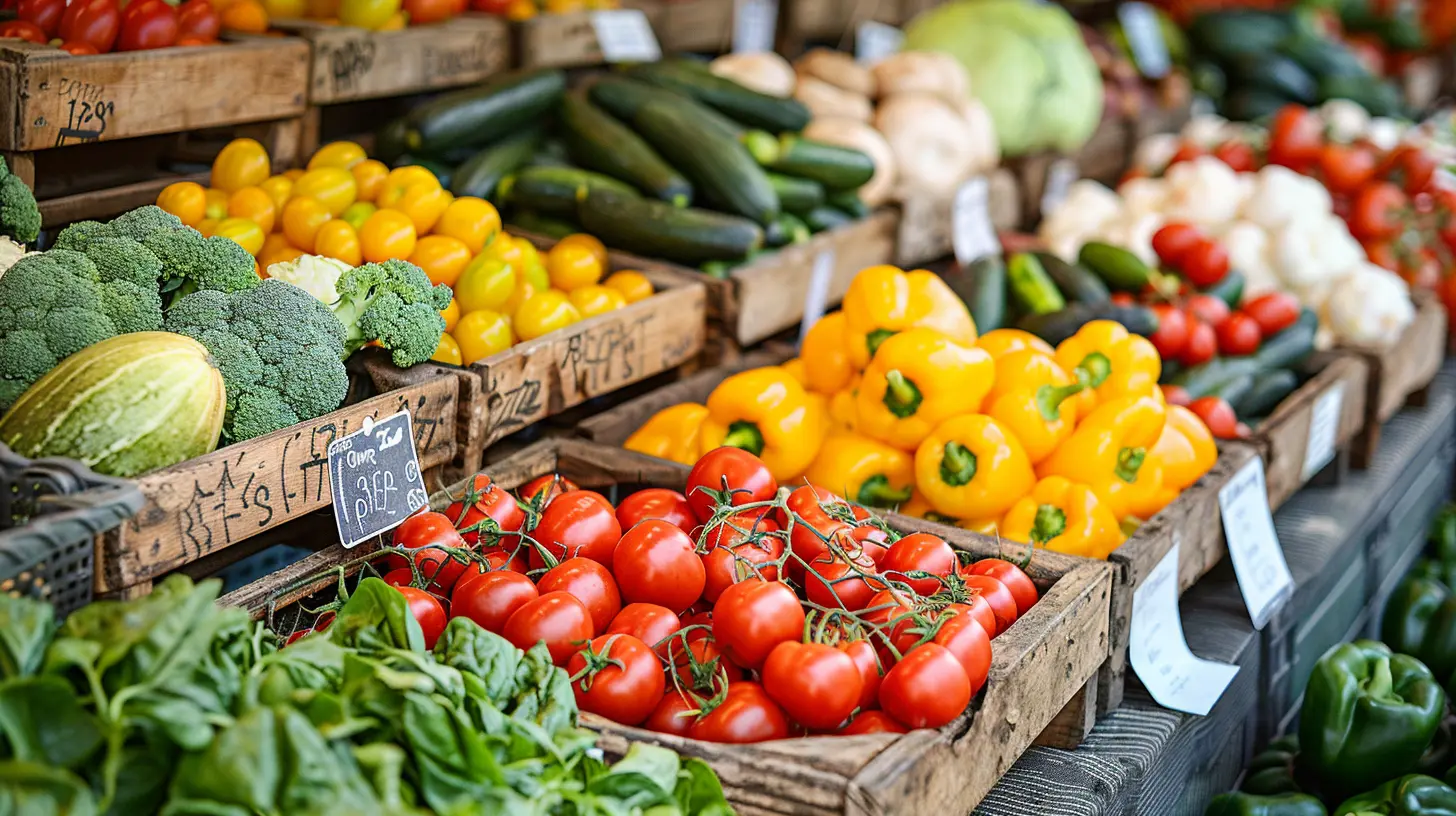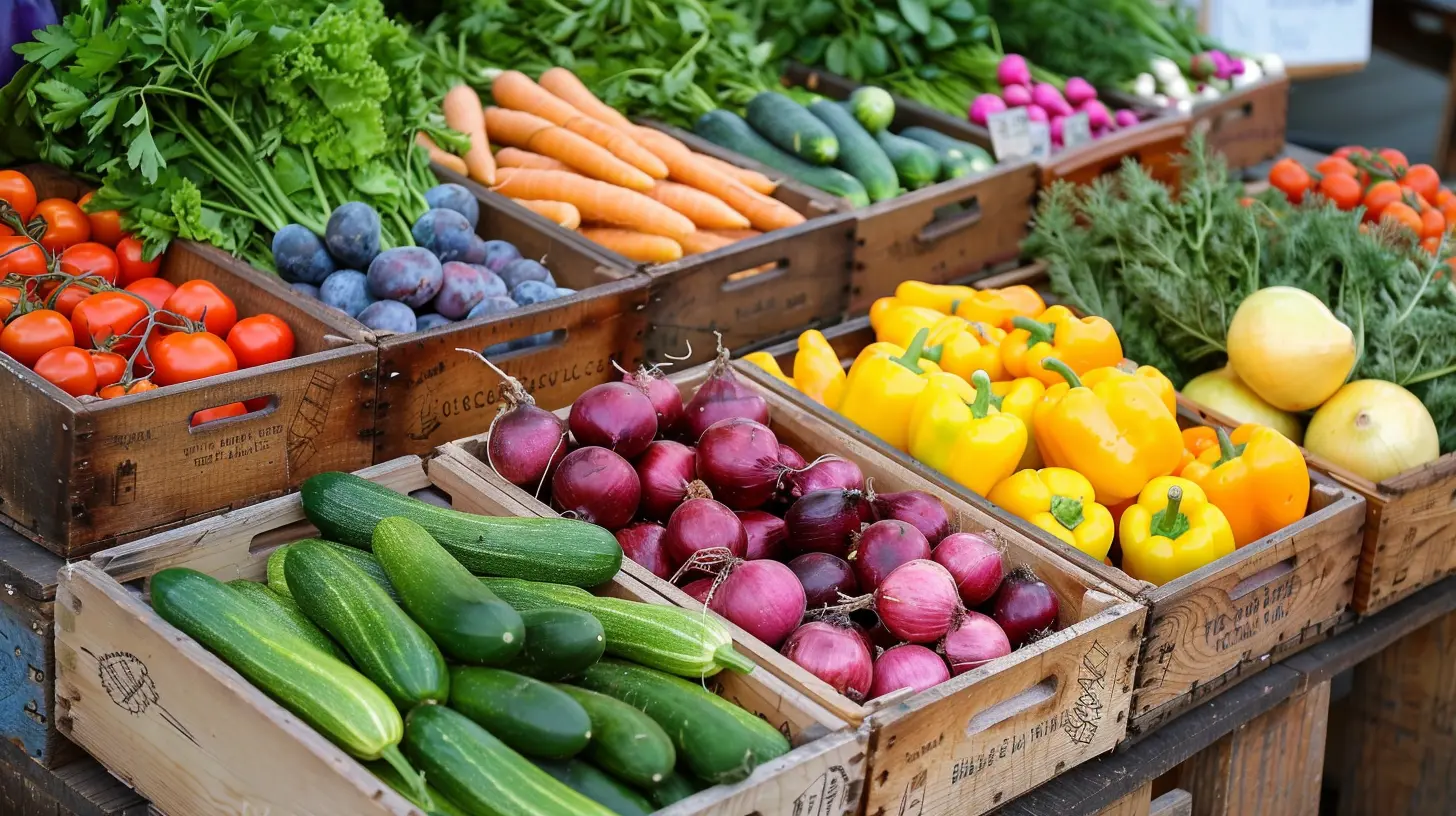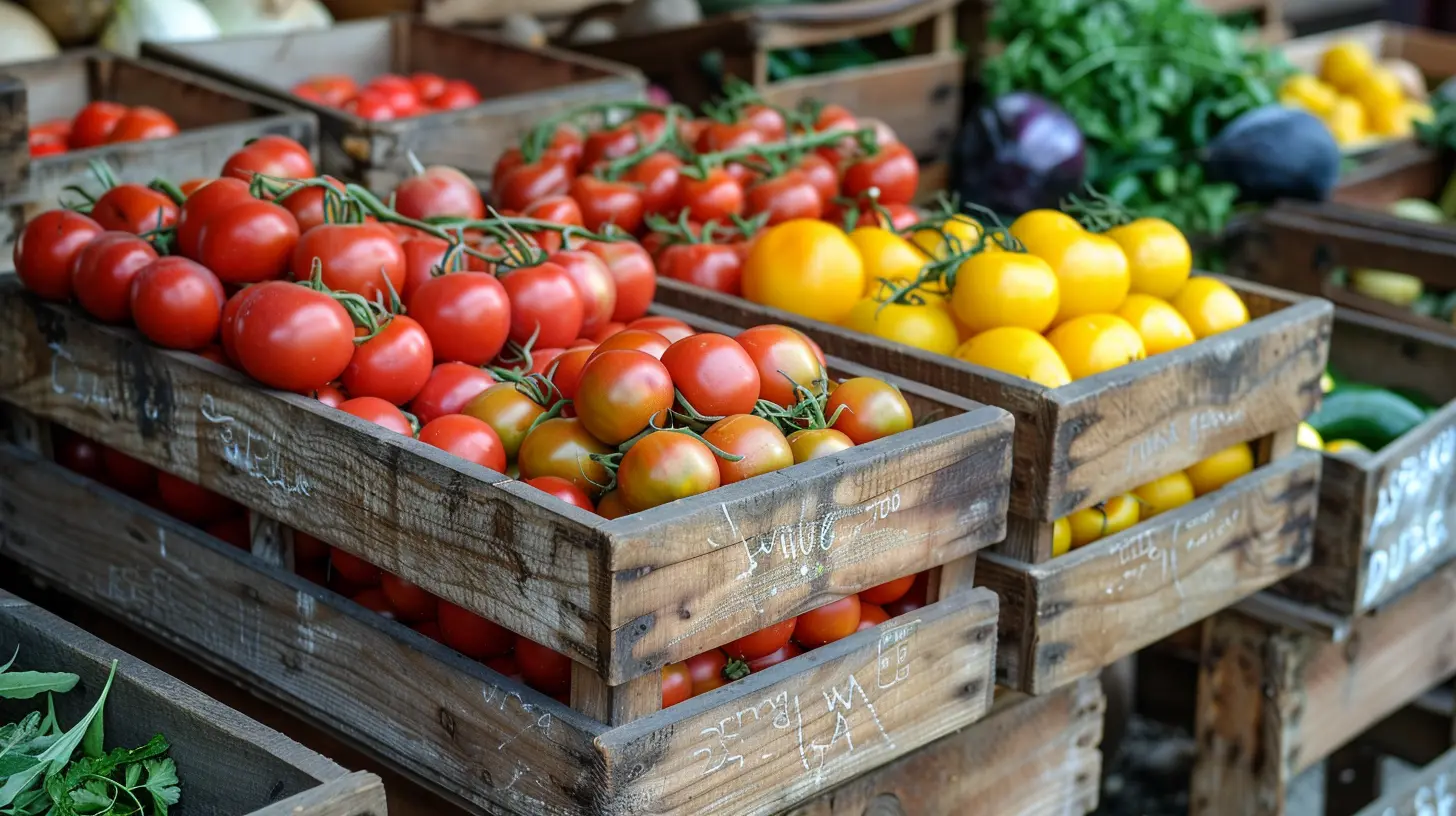25 April 2025
Shopping for organic foods at farmers markets isn’t just a trend—it’s a lifestyle choice that benefits your health, supports local farmers, and helps the planet. But if you've ever wandered through a farmers market feeling overwhelmed or unsure of how to get the best deals, you're not alone!
In this guide, we’ll break down everything you need to know about shopping for organic foods at farmers markets. From choosing the freshest produce to bargaining like a pro, we’ve got you covered. 
Why Shop at Farmers Markets?
Farmers markets are a treasure trove of fresh, seasonal, and organic foods. But why should you ditch the grocery store and opt for a local market instead?1. Fresher and More Nutritious Produce
Unlike grocery store produce that’s been sitting in transit for days (or even weeks), farmers market fruits and veggies are often picked just hours before hitting the stands. This means better flavor, higher nutrient content, and longer shelf life.2. Supports Local Farmers
When you buy directly from farmers, your money goes into their pockets—not a corporate supermarket. This helps small-scale farmers thrive and encourages sustainable agricultural practices.3. Fewer Pesticides and Chemicals
Many farmers at these markets grow their food organically, even if they aren’t officially certified. This means no synthetic pesticides, herbicides, or wax coatings—just pure, wholesome goodness.4. Better for the Environment
Most food in supermarkets is transported from hundreds or thousands of miles away, contributing to carbon emissions. Shopping locally reduces your carbon footprint and helps promote eco-friendly farming.
How to Spot High-Quality Organic Foods
Not all produce labeled "organic" is created equal. Here’s how to ensure you’re getting the best quality food at the market.1. Ask About Growing Practices
Many small farmers use organic methods but can’t afford the official certification. Don’t be shy—ask about their growing practices. Pesticide-free? Non-GMO? The more you know, the better choices you can make.2. Look for Imperfections
Ironically, the best organic produce isn’t always the prettiest! Shiny, perfectly shaped fruits and veggies could signal heavy chemical use. Organic produce often has minor blemishes, but that’s a good thing—it means it's natural and chemical-free!3. Smell Before You Buy
Fresh, organic produce has a distinct aroma. If you pick up a peach and it smells like… well, nothing—it’s probably not the best choice. A strong, natural scent usually means the fruit is ripe and packed with flavor.4. Check for Seasonal Produce
Eating seasonally is not only healthier but also more affordable. If you see strawberries in the winter, they weren’t grown naturally. Stick with foods that are in season for the freshest and most nutrient-dense options.
Tips for Getting the Best Deals
Who doesn’t love a good deal? While farmers markets may seem pricier than grocery stores, with the right strategies, you can save money while still enjoying top-notch organic food.1. Shop Late for Discounts
Farmers don’t want to take unsold produce back home. If you visit closer to closing time, they’re more likely to offer discounts to clear inventory.2. Buy in Bulk
Purchasing a larger quantity of veggies, fruits, or grains can sometimes score you a better price. If you can’t finish it all, split with a friend or freeze for later.3. Compare Prices
Not all stalls price their products the same way. Take a lap around the market before making purchases to spot the best deals.4. Bring Cash
Many vendors prefer cash over card payments since it saves them on processing fees. Plus, some might offer a small discount for paying in cash!5. Don’t Be Afraid to Haggle
Negotiating is part of the market culture. If you’re buying multiple items from one vendor, ask if they can cut you a deal. Just be polite and respectful.
Must-Have Staples to Look For
If you’re new to shopping at farmers markets, here are some staples you shouldn't leave without:1. Leafy Greens
Spinach, kale, and Swiss chard are packed with vitamins and are often fresher than those found in supermarkets.2. Organic Berries
Berries are typically sprayed with high amounts of pesticides in conventional farming. Farmers market berries are often organic and taste way better!3. Free-Range Eggs
Farm-fresh eggs have richer yolks and better flavor than store-bought ones. Plus, they’re packed with more nutrients.4. Grass-Fed Meats and Dairy
If you consume animal products, opt for grass-fed meats and pasture-raised dairy. They’re healthier and more sustainable.5. Raw Honey
Raw, local honey is an immunity booster and a great natural sweetener. Bonus: It may even help with seasonal allergies!Essential Farmers Market Etiquette
Want to be a pro farmers market shopper? Keep these etiquette tips in mind:- Bring Your Own Bags: Many vendors don’t provide bags, and it’s more eco-friendly to bring your own.
- Know What You Want, But Be Flexible: Have a shopping list, but stay open to trying new seasonal foods.
- Respect the Farmers: They work hard to bring you quality food—show some appreciation!
- Don’t Touch Everything: Vendors don’t appreciate customers handling produce excessively. Point to what you want, and let them bag it for you.
Final Thoughts
Shopping for organic foods at farmers markets is one of the best ways to eat cleaner, support local farmers, and live a healthier lifestyle. By knowing what to buy, when to shop, and how to spot the best quality produce, you can make the most of your market trips.So, grab your tote bag, hit up your local farmers market, and start filling your kitchen with fresh, organic goodness. Your body (and taste buds) will thank you!




Elin Pope
Great tips! Farmers markets offer fresh organic options, supporting local farmers and healthier choices.
April 26, 2025 at 4:53 AM